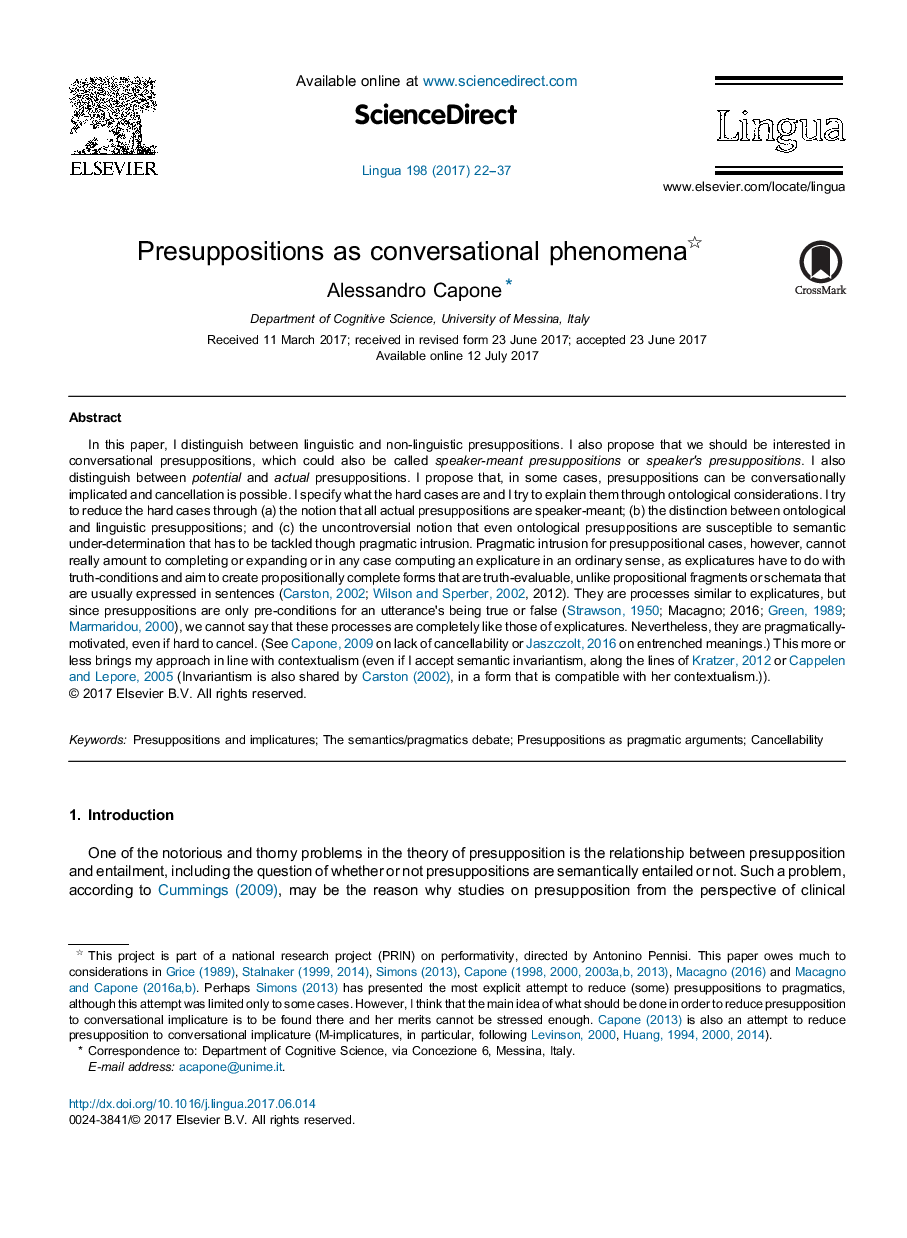| کد مقاله | کد نشریه | سال انتشار | مقاله انگلیسی | نسخه تمام متن |
|---|---|---|---|---|
| 5042954 | 1475020 | 2017 | 16 صفحه PDF | دانلود رایگان |
In this paper, I distinguish between linguistic and non-linguistic presuppositions. I also propose that we should be interested in conversational presuppositions, which could also be called speaker-meant presuppositions or speaker's presuppositions. I also distinguish between potential and actual presuppositions. I propose that, in some cases, presuppositions can be conversationally implicated and cancellation is possible. I specify what the hard cases are and I try to explain them through ontological considerations. I try to reduce the hard cases through (a) the notion that all actual presuppositions are speaker-meant; (b) the distinction between ontological and linguistic presuppositions; and (c) the uncontroversial notion that even ontological presuppositions are susceptible to semantic under-determination that has to be tackled though pragmatic intrusion. Pragmatic intrusion for presuppositional cases, however, cannot really amount to completing or expanding or in any case computing an explicature in an ordinary sense, as explicatures have to do with truth-conditions and aim to create propositionally complete forms that are truth-evaluable, unlike propositional fragments or schemata that are usually expressed in sentences (Carston, 2002; Wilson and Sperber, 2002, 2012). They are processes similar to explicatures, but since presuppositions are only pre-conditions for an utterance's being true or false (Strawson, 1950; Macagno; 2016; Green, 1989; Marmaridou, 2000), we cannot say that these processes are completely like those of explicatures. Nevertheless, they are pragmatically-motivated, even if hard to cancel. (See Capone, 2009 on lack of cancellability or Jaszczolt, 2016 on entrenched meanings.) This more or less brings my approach in line with contextualism (even if I accept semantic invariantism, along the lines of Kratzer, 2012 or Cappelen and Lepore, 2005 (Invariantism is also shared by Carston (2002), in a form that is compatible with her contextualism.)).
Journal: Lingua - Volume 198, October 2017, Pages 22-37
